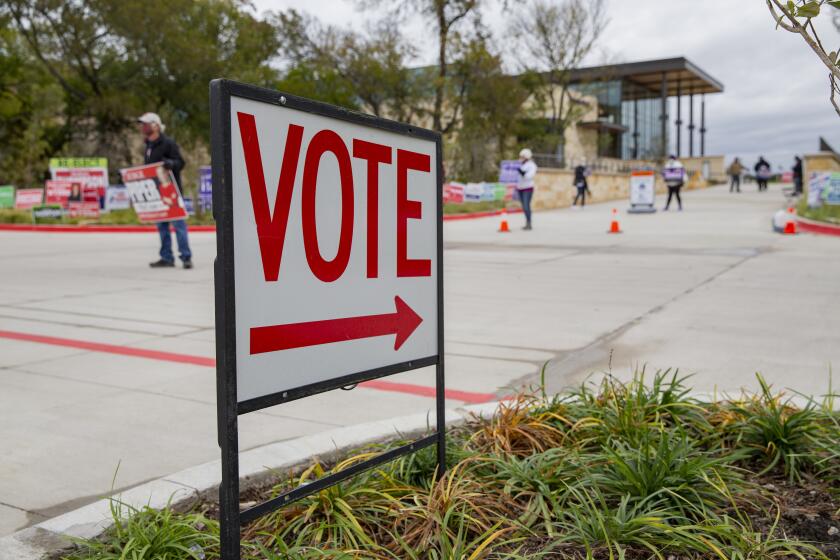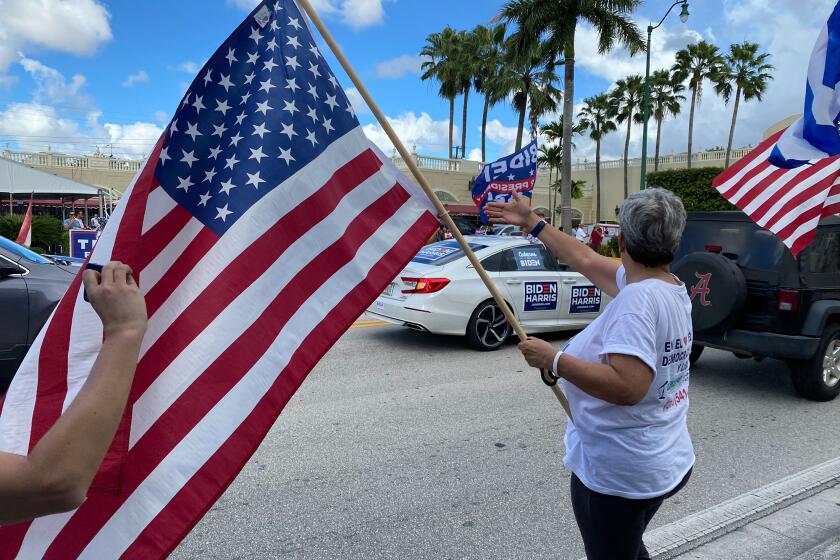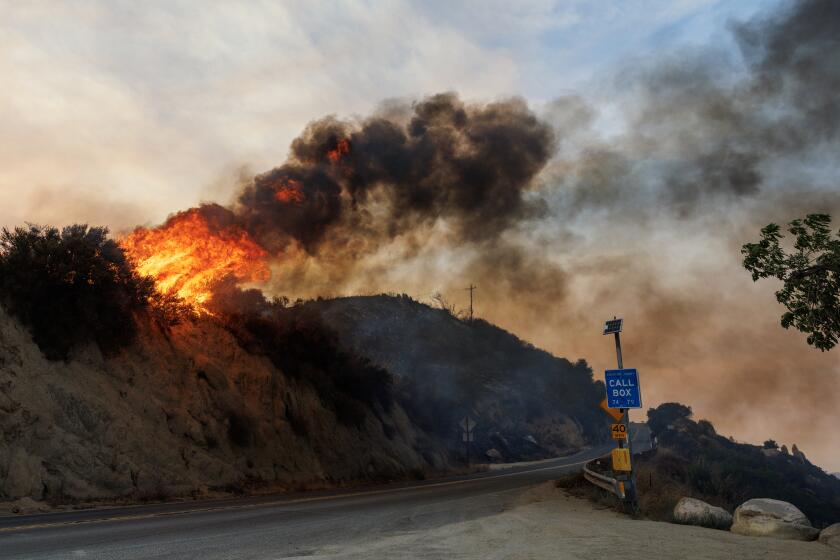In Orange County, voters say there is a lot at stake
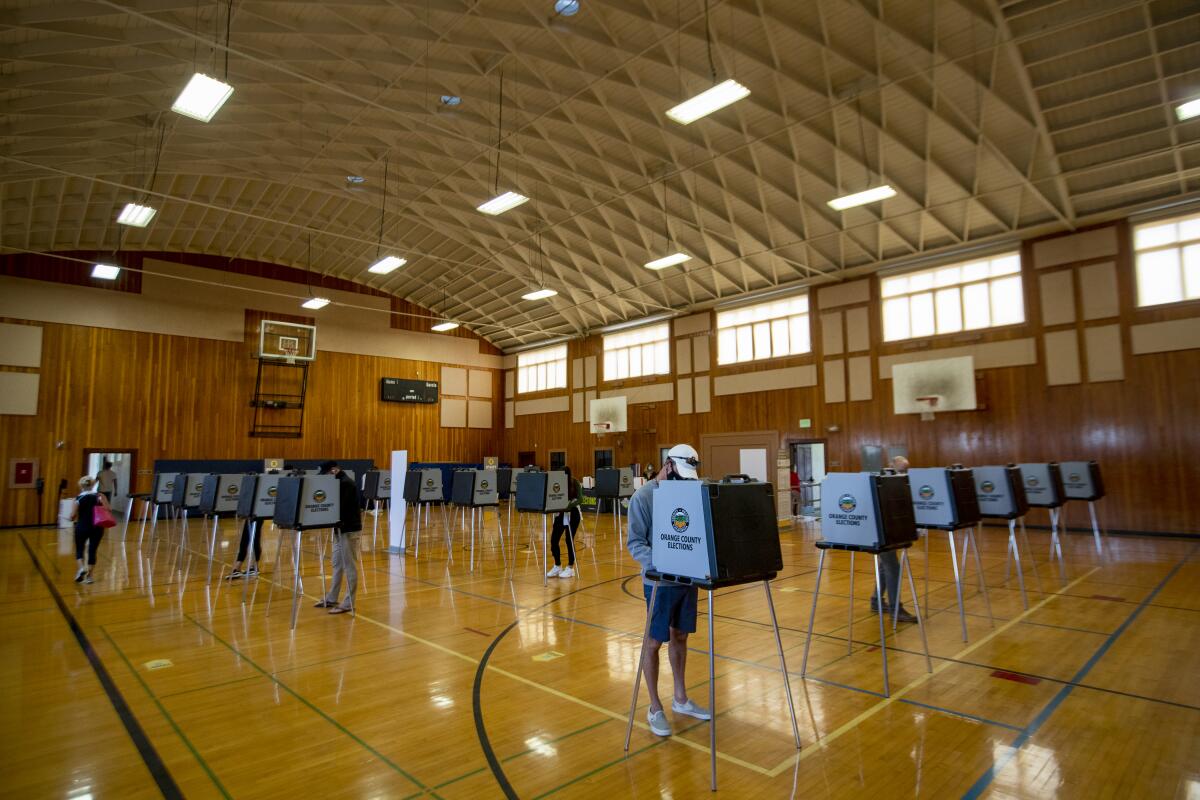
In Orange County, reminders that it was election day were not hard to find.
Motorists entering the county on the southbound 405 saw Trump supporters holding banners announcing their allegiance to the president.
Major landmarks such as the Irvine Civic Center were serving as polling places.
Even at a taco truck in Santa Ana, where a street musician crooned “Lo Mucho que te Quiero” (“How Much I Love You”), the election was not far from people’s minds.
Orange County was once a bastion of conservatism, but its politics have evolved as it becomes more racially diverse and highly educated voters rebel against the Republican Party.
In 2016, the county broke for Hillary Clinton. Two years later, Democrats swept all seven congressional seats.
At John Wayne Airport on Tuesday, Kamaria Brooks flew in from Houston at 11 a.m., then headed to cast her ballot.
With the COVID-19 pandemic, she had avoided flying home to Irvine for months. She has health conditions that prompted her doctors to advise against traveling.
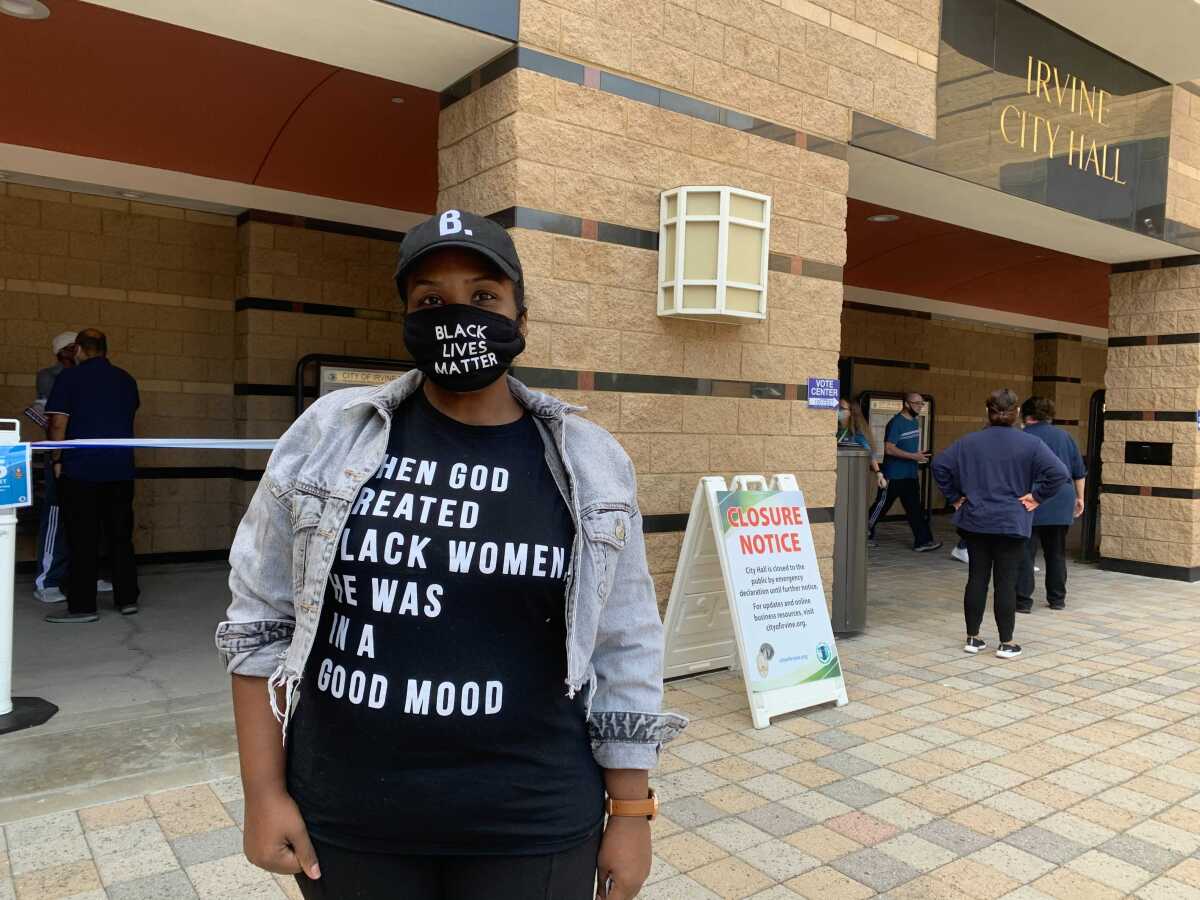
But she was determined to show up in her hometown in person on election day.
Problems with the U.S. Postal Service and ballot drop boxes made her risk the trip to make sure her vote was counted.
“I refused to miss today. I need my voice to be heard,” said Brooks, 40, a Joe Biden supporter who is unemployed. “There’s a lot of stuff that impacts me and my community.”
By 11:30 a.m., Brooks was waiting in a long line at the Irvine Civic Center, sporting Black Lives Matter insignia from head to toe.
“A lot of change needs to be made in this country, and Trump’s got to go,” said Brooks, who is Black.
Election 2020: When will we know if Biden or Trump wins? What happens if Trump says he won while votes are still being counted? What’s a ‘red mirage’?
It was Ada Mariano’s first time voting. Dropping off her ballot in a drop box on the UC Irvine campus in between midterms felt “awesome,” she said.
Mariano, 21, a political science major, said the election was especially important for her as a first-generation college student with friends who are in the country illegally.
She took her time to research the issues thoroughly, waiting until election day to cast her ballot.
“For me and my family, there’s a lot at stake for us,” Mariano said. “For my friends who aren’t citizens, this is for them.”
At the Alebrije’s food truck in Santa Ana, José Luis Acosta Escobedo sang and strummed a guitar to a lunchtime crowd: “Believe me when I tell you that I love you. Believe me when I tell you that I care.”
The lyrics to the bilingual Chicano oldie-but-goodie “Lo Mucho que te Quiero” by René y René seemed apt when each presidential candidate has sought to convey that he understands the struggles of the average American.
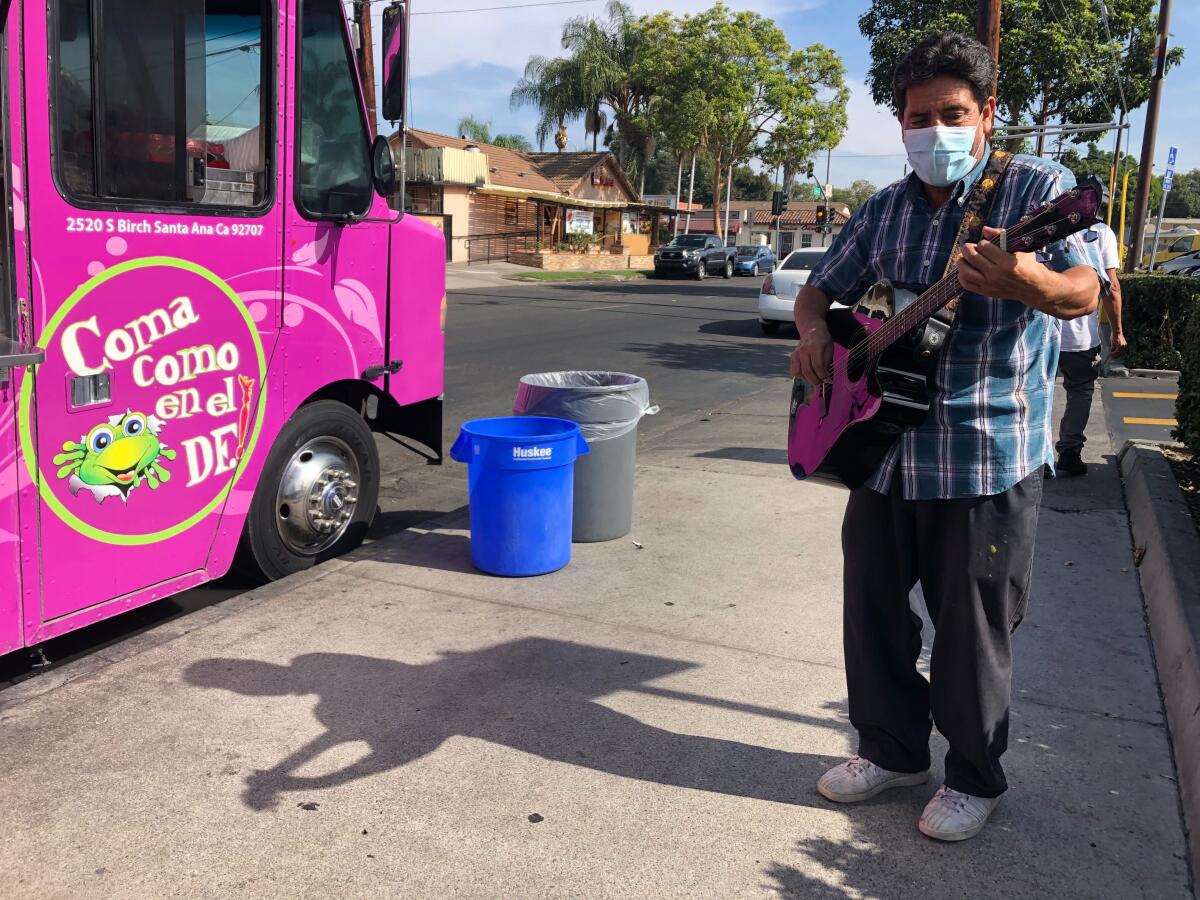
Eaters applauded Acosta Escobedo’s raspy take and rewarded him with $1 bills after they finished off their tacos.
“I’ve loved that song since I was a chavalillo [little kid],” said the native of Morelia in Mexico’s Michoacán state. “It’s something positive for today, so people can relax a bit.”
Acosta Escobedo busks around the city during the week and wasn’t about to take election day off.
As a permanent resident, he isn’t eligible to vote. But the 62-year-old urged his friends and family to do so, “because we’re in a critical moment.”
In Latino households and communities, disinformation about the presidential election is rampant. Many are trying to combat it online and in person.
He didn’t like how Trump had started off his first campaign in 2015 “saying all these nasty things about us Mexicans. But he really hasn’t attacked us since. And he’s respected [Mexican President Andrés Manuel] López Obrador.
“We Latinos have always gone for the Democrats,” Acosta Escobedo added. “But now we have to think about it — and we didn’t know we would one day.”
Acosta Escobedo wouldn’t say whether he preferred Trump over Biden, saying only that “whoever is my president, I’ll respect.”
He does want to know who his wife voted for.
“But she won’t tell me,” he said with a laugh. “She said it’s a secret ballot in the United States.”
Times staff writer Thomas Curwen contributed to this report.
More to Read
Sign up for Essential California
The most important California stories and recommendations in your inbox every morning.
You may occasionally receive promotional content from the Los Angeles Times.
